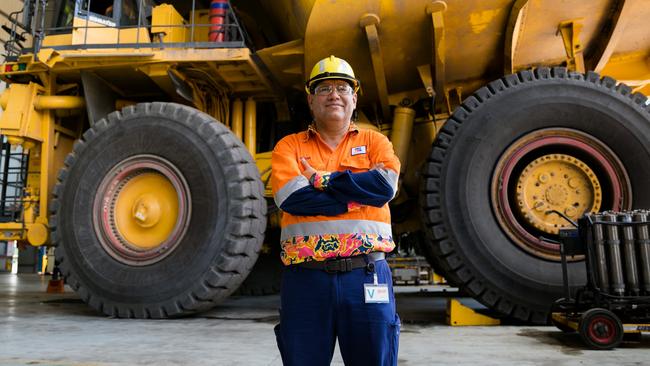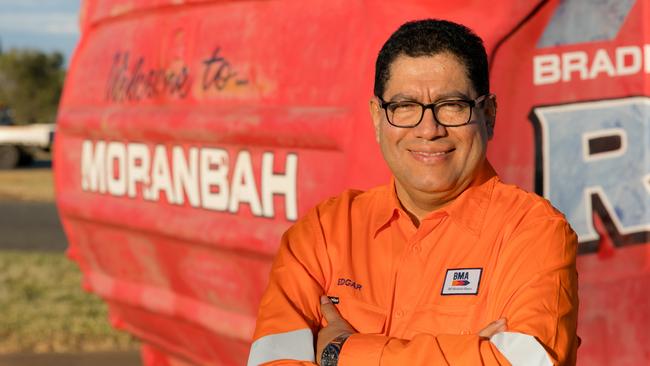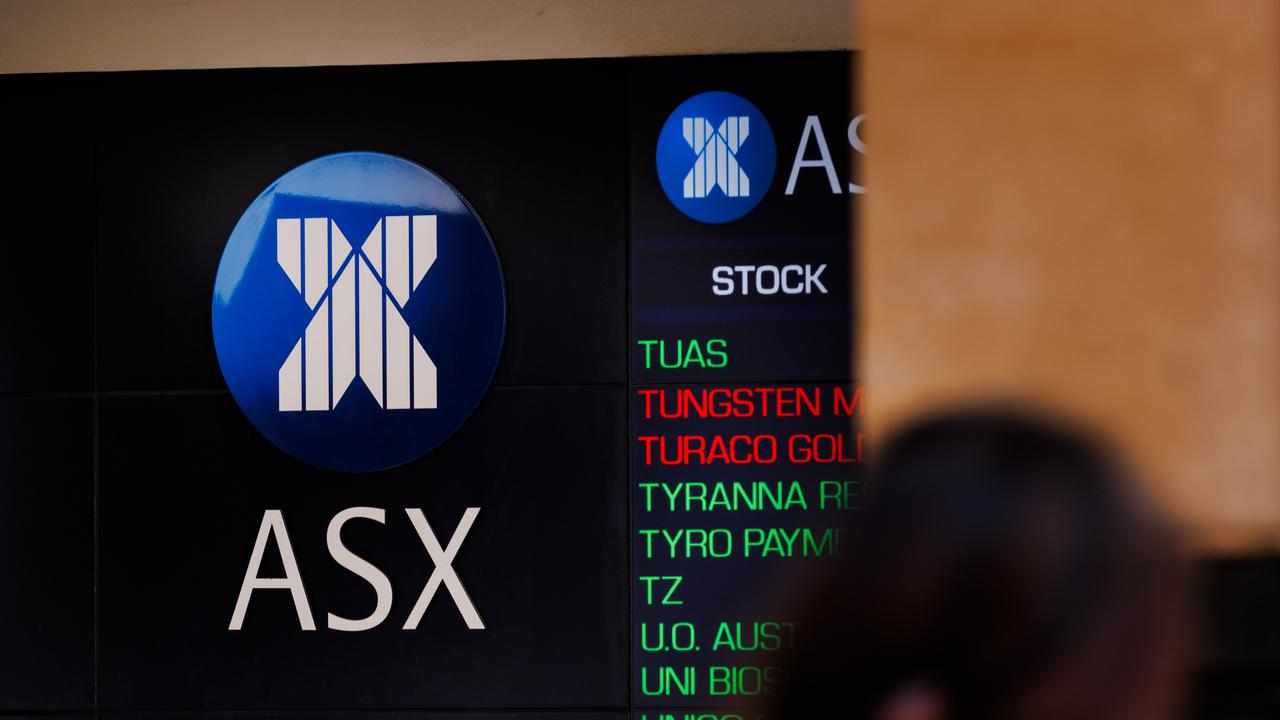BHP to shut door on staff without Covid-19 vaccination
Declaring its mines and offices off limits to unvaccinated staff by February could flow on to thousands of BHP contractors and is opposed by a key Queensland union.

Business
Don't miss out on the headlines from Business. Followed categories will be added to My News.
BHP declared it will shut off access to its mines and offices to staff that are not full vaccinated against Covid-19 by February with the mining heavyweight telling its entire local workforce to get jabbed as soon as they can.
The move marks one of the biggest employers to move to a full vaccination mandate beyond government mandates, which is expected to see a string of major corporates follow.
BHP’s is the only major miner to extend compulsory vaccinations outside of states where health directions have been issued to workforces.
Food manufacturer SPC kicked off the move to compulsory vaccination for its workforce in August. More recently Qantas, Virgin and Telstra have mandated vaccines for staff in customer facing roles.
The January 31 deadline for full vaccination will apply to BHP’s national operations, but the company said it would pull forward a deadline for employees and contractors to get a first vaccination its Mt Arthur operations in NSW “considering local risk factors”.
BHP’s offices and mines in WA and Victoria will also work towards earlier vaccination deadlines imposed for critical and fly-in fly-out workers by state health authorities.
BHP has some 45.300 employees and embedded contractors that work across its sites in Australia, plus thousands more visitors and temporary contractors that visit its mines and offices each year.

BHP Minerals Australia boss Edgar Basto said the decision came after an extensive review of the company’s needs and the safety of its workforce.
“The science is clear that widespread vaccination saves lives. In line with government guidance, we recognise the path forward is through widespread vaccination in Australia and we are looking at a range of practical ways to support that while protecting communities and workforces,” he said.
“We have undertaken a thorough assessment and believe that this is the right path forward to protect the health of our people, their families and the communities where we operate – including remote Indigenous communities – while continuing to safely run our operations.
“We know this will raise questions for some, and we will work closely with our workforce as we go through the process of implementing these controls at our workplaces.”
The decision will have widespread ramifications throughout the resources sector, given it will trigger similar requirements at mining services companies, both large and small, that have contracts with the mining giant, effectively forcing them to mirror BHP’s own decision in order to continue working on the company’s mines.
The WA government has already ordered the mining industry’s FIFO workforce to get vaccinated by the end of the year or face travel bans, a decision that will affect the state’s entire industry.
But vaccination will be more acute for BHP in Queensland, where the major regions in which the company operates – Central Queensland and the Mackay region – are lagging badly behind the rest of the state in terms of vaccination take-up, with only about 57 per cent of over-15s even having received their first dose.
BHP also largely relies on a residential workforce for its Queensland coal operations, which employ 14,400 workers and contractors. But the decision will also affect the legion of small businesses, truck drivers, and service providers that also visit its mines on an occasional basis.
BHP will keep its own vaccination records for its workforce and core contractors, and will ask visitors to lodge proof of vaccination within its existing site registration system.
The move may face opposition from unions in Queensland, who have argued against making vaccination compulsory in favour of an education and incentive campaign to bring rates up.
Mining and Energy Union Queensland District President Stephen Smyth said on Thursday the union, which has a strong presence at BHP’s coal mines, did not support the move.
“We have strongly advocated to government and industry that Covid-19 vaccinations should be voluntary for mineworkers, with the high rates we need to protect safety better achieved through education, access and incentives,” he said.
“BHP must engage in genuine consultation with the workforce. Some of our immediate concerns include fair treatment of casuals and contractors on BHP sites – keeping in mind that a minority of workers on BHP’s Queensland mine sites are direct employees – support for workers with a genuine medical exemption and paid time for workers to get vaccinate or in case of experiencing vaccine-related side-effects.”
It is understood that, behind the scenes, union leaders have indicated to major Australian industries including mining that they won’t support vaccination mandates imposed by individual companies, but would accept health orders and directives from state governments.
The Australian understands that BHP and other major resource companies played a key role in encouraging the WA Government to issue its FIFO workforce mandate, as it would allow them to order compulsory vaccinations without a backlash from their own workforces.
But while the Queensland government is yet to mirror WA’s moves to mandate mining vaccination, BHP’s move was welcomed by Queensland chief health officer Jeanette Young.
Speaking in Mackay, Dr Young said the mining industry had worked hard since the start of the pandemic to keep the deadly disease off its work sites.
“From day one they have worked with me so well, and I’ll give them ideas and they have run with them so well,” she said.
“And yet again they’re doing a wonderful job.”
Other WA miners have told their employees they must abide by the state government direction to receive a first vaccination by December 1, and be fully vaccinated by the end of the year.
Rio Tinto extended the direction beyond its remote Pilbara mines to its Perth office this week, and on Thursday Chris Ellison’s Mineral Resources extended the state government mandate to its entire 5000-strong workforce, as well as to visitors to any of its sites and offices.
Fortescue Metals Group has also directed its FIFO workforce to vaccinate in line with the WA government orders, but has said only that it is “strongly encouraging” full vaccination of its Perth office staff.
Glencore, which also has a major presence in Queensland and NSW coal, said it will comply with any vaccine mandates set by regulatory bodies, and is “proactively encouraging our entire workforce to get vaccinated”.
Originally published as BHP to shut door on staff without Covid-19 vaccination





